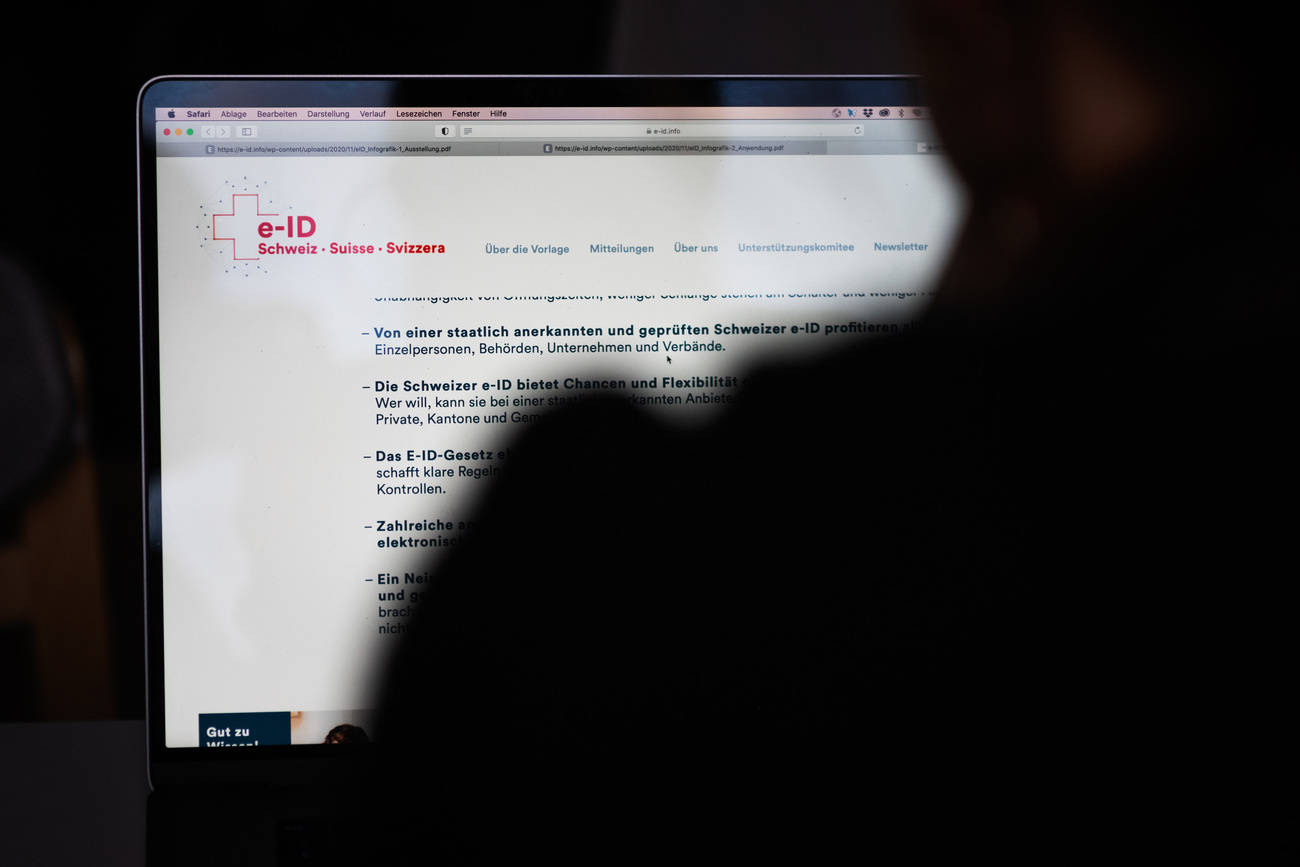
Swiss Parliament revives e-ID proposal with state solution

Around three years after the "no" vote at the ballot box, a new attempt is being made in Parliament to introduce an electronic ID (e-ID), this time with a state solution. The House of Representatives committee responsible is convinced by the Federal Council's proposal and only wants to make a few changes.
In the overall vote, the legal affairs committee of the House of Representatives approved the Federal Council’s proposal by 21 votes to 0 with 3 abstentions, as reported by the Parliamentary Services on Friday. The matter will be dealt with in the spring session.
The committee is requesting that the Federal Council make a number of changes to the draft in order to further increase the protection of personal data and emphasise the role of the Confederation. Specifically, it is calling for an expansion of the architecture to ensure anonymous identification, for example to enable anonymous online proof of age.

More
‘Electronic identity will make life easier for Swiss Abroad’
It also wants the source code of the trust infrastructure software to be published in full and the Confederation to publish disclosure guidelines and carry out security tests. In order to further increase the protection of personal data, the commission also requests that the e-ID be revoked immediately if the security of the system can no longer be guaranteed.
For all authorities
According to current plans, electronic proof of identity is to be offered from 2026. Use of the e-ID should be voluntary and free of charge. The Federal Council would like the infrastructure required to operate the e-ID to also be used by cantonal and municipal authorities as well as private individuals to issue electronic proof of identity.
A total of around CHF182 million ($206 million) will be required between 2023 and 2028 for the development and operation of the trust infrastructure, the issue of the e-ID and the pilot projects. The operating costs from 2029 are estimated at around CHF25 million per year. In a first attempt, the E-ID Act – with a private solution – was defeated at the ballot box in March 2021.
Translated from German by DeepL/amva
This news story has been written and carefully fact-checked by an external editorial team. At SWI swissinfo.ch we select the most relevant news for an international audience and use automatic translation tools such as DeepL to translate it into English. Providing you with automatically translated news gives us the time to write more in-depth articles.
If you want to know more about how we work, have a look here, and if you have feedback on this news story please write to english@swissinfo.ch.

In compliance with the JTI standards
More: SWI swissinfo.ch certified by the Journalism Trust Initiative




























You can find an overview of ongoing debates with our journalists here . Please join us!
If you want to start a conversation about a topic raised in this article or want to report factual errors, email us at english@swissinfo.ch.